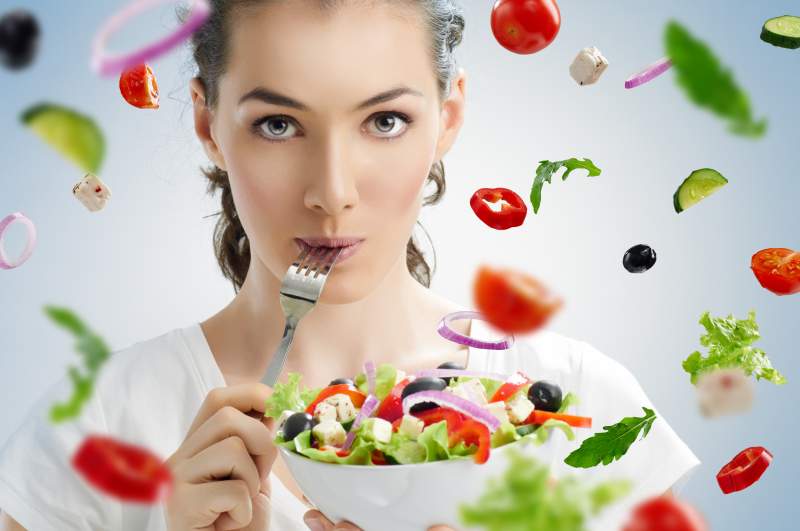
Being a Vegetarian – The Pros and Cons
18-06-2020 | Posted By: Admin | 4984 View(s)
What is vegetarianism? It’s practice in which one refrains from eating food items like fish, poultry, red meat and also the meat/flesh of other living animals. The diet followed in this custom is mainly derived from different kinds of plants or plant-based eatables. It might or might not include dairy products or eggs; this depends on what kind of vegetarian a person is. The different types of vegetarian diets are namely, Raw Veganism; Lacto, Ovo and Ovo-Lacto vegetarianism; Veganism; sattvic diet; fruitarianism; Jain and Buddhist vegetarianism; and macrobiotic diets.
Today, more and more non-vegetarians are converting themselves to vegetarians for various reasons like health-related issues, economic and environmental factors. Read on to get a generalised idea about the pros and cons of turning into a vegetarian.

The Pros of being a Vegetarian:
• Plant food is a great source of minerals, vitamins, and protein; basically, all the beneficial nutrients that are good for health. Vegetarians get minerals and vitamins like folic acid, magnesium, phosphorous, zinc, and vitamins E, C and A from vegetables and fruits. Also, these foods have low sugar, fat and salt content. And today everyone knows how these factors are beneficial for good health. Vegetarianism, when practised with other healthy lifestyle choices, can help in reducing obesity, maintaining a healthy weight, reducing blood pressure and cholesterol. Having vegetables and fruits of different colours, like white foods (cauliflower), green vegetables (spinach), red foods (watermelon), and purple foods (blueberries), can have an overall beneficial effect.
• A vegetarian diet is a natural way to reverse or keep away various diseases. Vegetarians can totally avoid cholesterol consumption because mainly animal foods contain cholesterol. Also, their intake of saturated fat is minimised. Through vegetables and fruits, people get more quantities of beneficial minerals, complex carbohydrates, phytochemicals and dietary fibre. These factors help a vegetarian diet to prevent as well as fight type 2 diabetes. Also, diets that are low-fat and plant-based can greatly help in reducing the risk of heart disease (cardiovascular diseases), heart attack, high BP or blood pressure, and even certain types of cancer. So many future chronic diseases can be prevented. Various studies have been done to prove these facts.
• Vegetarians get more quantities of useful proteins and minerals. The protein sources for vegetarians are not meat (or animals); they are purely the plant-based foodstuffs. Among them, soybeans can be a good source of protein. Meat has protein, but it contains a greater amount of saturated fats. When you consume food made of soybeans (like tofu) instead of meat, your body gets more amount of useful protein and lesser saturated fat. Also, it’s found that compared to meat-based diets, vegetarian meals can give you better and healthful forms of minerals like iron.
Furthermore:
• From the studies of human anatomy, it’s found that a vegetarian diet is more suitable for humans.
• Vegetarians have lesser chances of getting gallstones and kidney stones.
• Compared to meat-eaters, vegetarians can absorb greater amounts of calcium; so they have healthier bones too.
• It is believed by many that vegetarianism gives you a longer life.
The points mentioned above are just the health factors; there are plenty of humanitarian and environmental reasons which you can consider as the pros of turning yourself into a vegetarian.

The Cons of Being a Vegetarian:
• Without a well-balanced diet, the development of mineral and vitamin deficiencies can happen. When you stop eating meat, poultry, fish, and dairy, you’re reducing your consumption of minerals and vitamins like zinc, iron, calcium, vitamin B12, and much more. If you don’t consume vegetables and fruits that contain all these, you might put yourself at risk.
• Compared to non-vegetarians, the riboflavin levels in vegetarians are lower. To balance this, vegetarians need to consume other additional food items like yoghurt, almonds, bananas, soy, broccoli, etc.
• Finding proper vegetarian substitutes for healthy, non-vegetarian foods might become a hard task. This also depends on the food options available in your area and nearby.
• Meat happens to be a very convenient source of protein. A single serving of meat gives you Vitamin B; nutrients like zinc and iron; and all amino acids (essential) that are building blocks or basic units from which proteins are made. Just one serving of vegetarian/plant food cannot give you all these. Plus meat is good for your digestive and nervous system as it’s a great source of the vitamin B12. Also, you get healthy forms of saturated fats from meat; this improves the functioning of your nervous system and the immune system.
• Fish happens to be a very good source of DHA and EPA, which are omega-3 fatty acids. These reduce the risks of death caused due to strokes and heart attacks; and also, help in, lowering triglycerides, and proper brain functioning. Plant oils do contain ALA, an omega-3 fatty acid. However, with this your body first needs to convert the ALA to essential DHA and EPA; and this process is ineffective and not much help for your health.
Both vegetarian and non-vegetarian diet has its positive and negative sides. A balance might be all you need to stay healthy, but if you want to side with one of them consult your physician or a professional dietician before changing your food habit.


